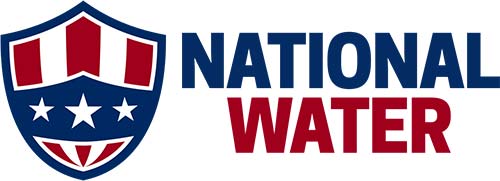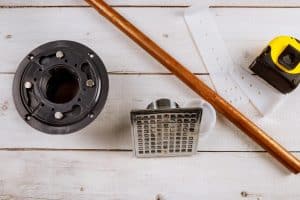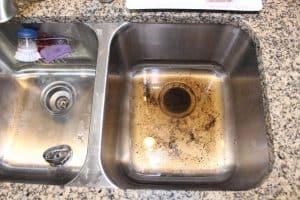(continued from part 1)
Tip 4 – Don’t use harsh chemical drain cleaners: Don’t use liquid drain cleaner if your pipes get blocked because it can make things worse in the long run. Instead, try using baking soda and vinegar to make a chemical reaction that can help break up the blockage, without damaging your pipes. Then pour boiling water down the drain behind the baking soda and vinegar, to clean it out even more. If something hard like a bolt or a kids toy is stuck and causing a blockage, don’t use a plunger, it could make it worse. Instead, use a shop vac to try and extract the object. This could save you from having to call a plumber.
Tip 5 – Baby your garbage disposal: Don’t allow fats, oils, or grease in your garbage disposal. It will more often than not, cause it to get blocked. Be careful with certain foods like celery and especially bones, because they can get stuck and jam the motor (your garbage disposal is not a substitute for the garbage can). Always have the water running when using the disposal to help it work better. All garbage disposals come with a key that you can use to free the motor by inserting it into the bottom of the disposal and working the grinding mechanism free. If you don’t hear the grinder turning, immediately turn it off. Leaving the switch on when it’s jammed can damage the motor. If your disposal isn’t turning on with the switch, there is a thermal protection reset on most models. It usually is located on the bottom of disposal, near the electrical connection cover. It is easily reset by firmly pushing the button in.
Tip 6 – Know what you can and can’t flush: Some wipes say they can be flushed down the toilet and won’t harm the pipes, but this is not always true. Even though they will eventually break down, they take a long time to do so, and too many can cause blockages. If you have a septic system, instead of city sewer, trusting the biodegradability of your favorite “environmentally friendly” wipe is not a good bet, especially if they cause you to have to pump your tank out prematurely. The list of unflushables includes baby wipes, feminine hygiene products, paper towels, cotton balls or swabs, and dental floss.
(continued)



